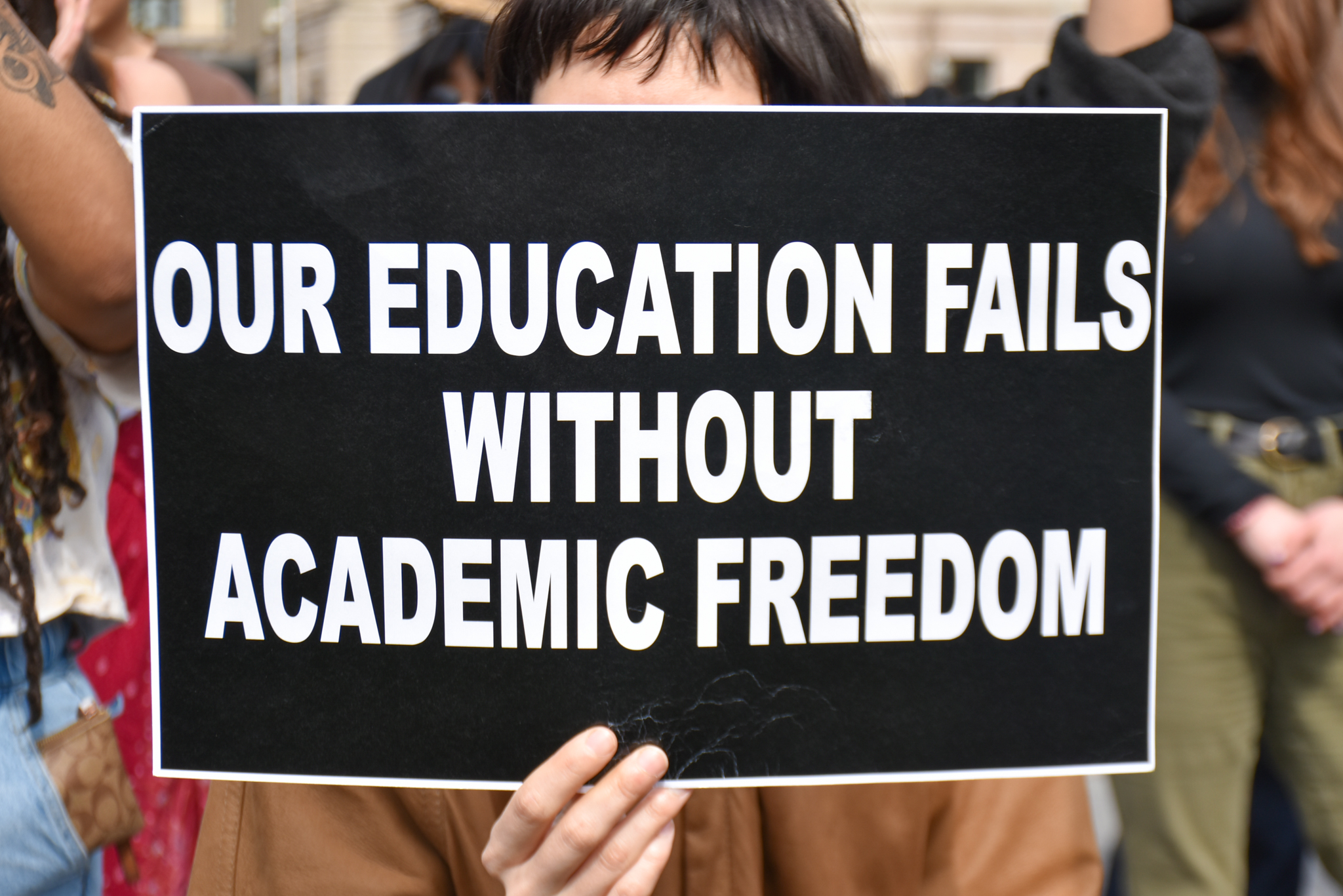On April 30th 2024, 77 percent of the faculty of Barnard College voted no confidence in President Laura Rosenbury. This week, the Columbia University Faculty of Arts and Sciences voted no confidence in President Nemat Shafik with a 65 percent majority. These motions insist on the vital need for shared governance and due process and call for resistance against external influences over our university community.

FOR IMMEDIATE RELEASE
Thursday, May 16, 2024
On April 30th 2024, 77 percent of the faculty of Barnard College voted no confidence in President Laura Rosenbury. This week, the Columbia University Faculty of Arts and Sciences voted no confidence in President Nemat Shafik with a 65 percent majority. These motions insist on the vital need for shared governance and due process and call for resistance against external influences over our university community.
The motion for no confidence in President Rosenbury highlights numerous failings: her harsh, arbitrary, and unfair disciplinary practices against student protesters; her infringement of principles of shared governance, as evidenced by an array of new college policies implemented without consultation or even communication; her repeated violations of academic freedom and freedom of speech for both faculty and students, as evidenced by new policies regulating protest, campus events, the website, and even dorm decorations; and her undermining of the culture of Barnard with a managerial style that is punitive, divisive, and non-consultative.
The motion for no confidence in President Shafik highlights her failure to resist politically motivated attacks on higher education in her Congressional testimony; her willingness to allow Congress to interfere in confidential decisions regarding faculty hiring, retention, and conduct; her repeated failure to abide by established practices of consultation with the University Senate; and her decision to invite armed police onto the Columbia campus throughout the academic year, most egregiously with the arrests of April 18th and 30th. This series of actions not only endangered our students; more broadly, it represents a serious threat to the core values of the university: academic freedom, shared governance, freedom of expression, and the right to peaceful assembly. The President’s choices to eschew democratic processes have undermined the faculty’s confidence in her and her leadership team.
These unprecedented votes by faculty at Columbia and Barnard speak against what the AAUP nationally has termed a “politically motivated assault on higher education.” Peaceful protests and debate among our students are being weaponized to undermine the independence and integrity of educational institutions. Politicians are undemocratically interfering in curriculum, the hiring and retention of faculty, disciplinary practices, and university governance. The AAUP leads in resisting these attacks and in defending the principles that shape America’s universities.
We must now rebuild. We need university leaders who appreciate the critical national stakes of what is happening on our campuses and are willing and able to defend the values of academic freedom, free expression, and faculty governance. In addition to their resolutions of No Confidence, the AAUP chapters join the Columbia University Senate in calling for a full investigation of the events that have unfolded on our campus since October 7, 2023. This investigation must be conducted by an independent committee with an expansive charge and full fact-finding powers, and the resulting report must be publicly released in its entirety.
Contact: aaupbarnard@gmail.com aaupColumbia@gmail.com
